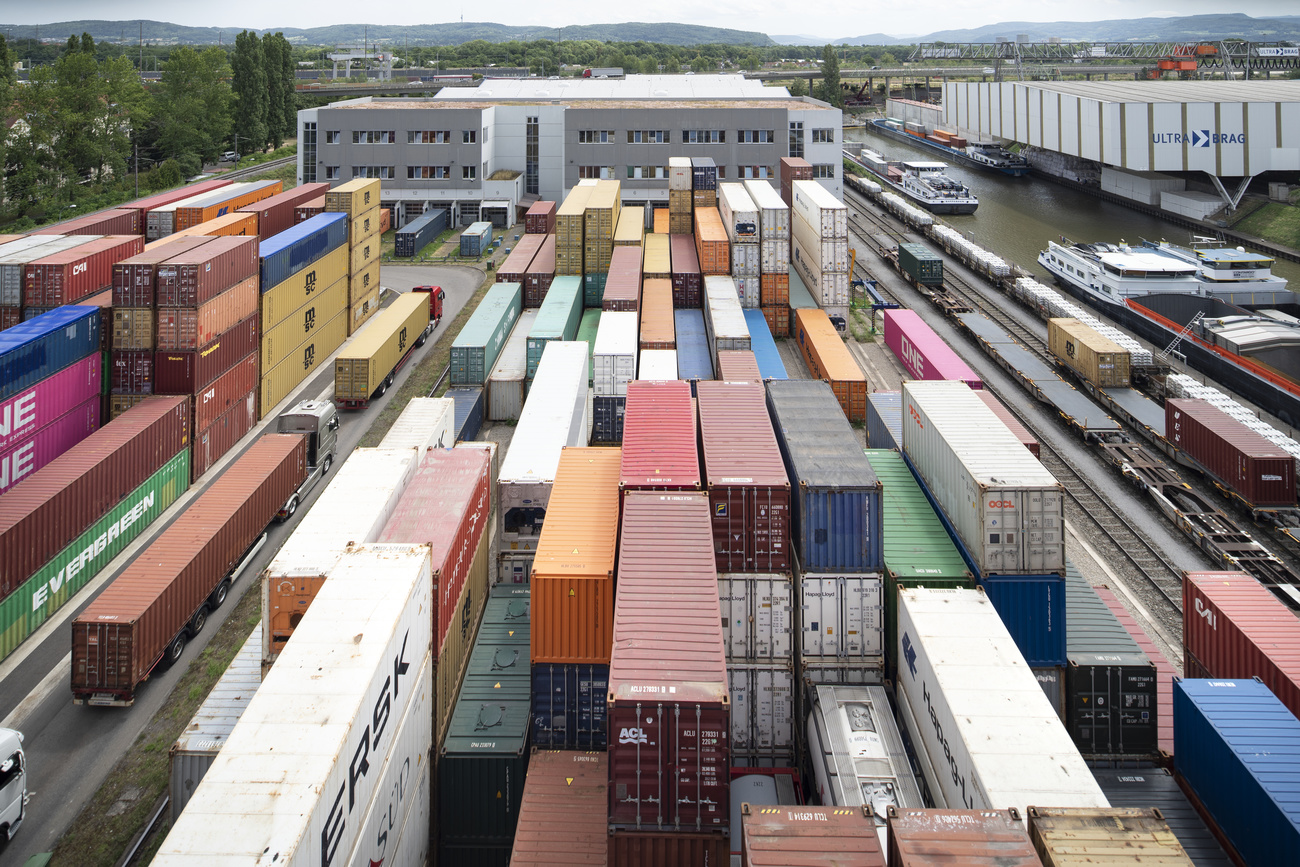
Swiss firms attach great importance to cash

Swiss companies remain happy to take cash payments from customers while public transport operators want to limit the use of physical francs, according to a survey by the Swiss National Bank (SNB).
+ Get the most important news from Switzerland in your inbox
Accepted by 98% of companies surveyed, cash is the most widely accepted means of payment in everyday consumer goods sectors, reveals the SNB in a study published on Wednesday. The reasons given are that customers want to pay in cash. In addition, cash is crisis-proof and a low-cost alternative to non-cash means of payment.
+ Switzerland’s continuing love affair with cash
Some 770 companies took part in the survey. Among those questioned were major retailers, public transport companies, restaurants, hotels, service providers such as hairdressers and dentists, as well as cultural and entertainment institutions.
Although cash remains the most widely accepted means of payment, it is under pressure: more than half of the public transport companies surveyed plan to limit cash acceptance over the next few years, not least because of the costs and effort required to return excess cash, writes the SNB.
Limited ATMs
Several companies explained that the services provided by banks and cash-in-transit companies were too expensive, and that there were too few ATMs and teller machines. They also felt that the range of services on offer was limited in some places. For example, it is not possible to make payments everywhere.
This is not the case for cultural and entertainment institutions, where only 13% plan to restrict cash flow. In the restaurant and hotel sector too, just under 7% of companies surveyed wish to reduce the acceptance of coins and banknotes.

More
How a Swiss banknote’s life comes to an end
Just over 20% of hotels and restaurants even plan to expand their acceptance of cash. This rate is the same among retailers and service providers.
Other means of payment
After cash, businesses most often accept debit cards. Credit cards come third, ahead of payment applications.
Based on the responses received, the SNB concludes that the wishes of companies must be taken into account by all players involved in cash circulation, i.e. banks, the Post Office, cash transport and sorting companies, and the SNB itself.
In particular, the infrastructure needs to be configured in such a way as to ensure that cash services are both accessible and cost-effective. “This is the only way to maintain broad acceptance of cash in the future,” writes the SNB.
Translated from French by DeepL/mga
This news story has been written and carefully fact-checked by an external editorial team. At SWI swissinfo.ch we select the most relevant news for an international audience and use automatic translation tools such as DeepL to translate it into English. Providing you with automatically translated news gives us the time to write more in-depth articles. You can find them here.
If you want to know more about how we work, have a look here, and if you have feedback on this news story please write to english@swissinfo.ch.

In compliance with the JTI standards
More: SWI swissinfo.ch certified by the Journalism Trust Initiative











































You can find an overview of ongoing debates with our journalists here . Please join us!
If you want to start a conversation about a topic raised in this article or want to report factual errors, email us at english@swissinfo.ch.